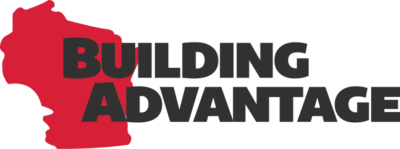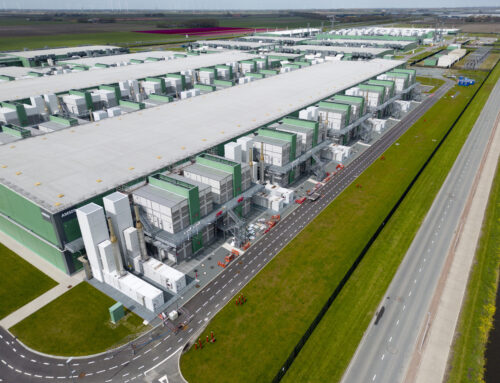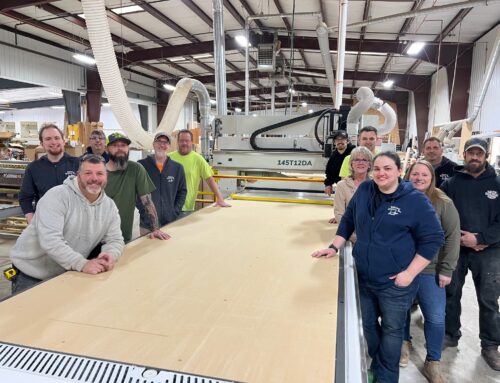 The construction industry is often referred to as a career path for “tough” people. However, the demands of the job can put a physical and mental strain on the toughest among us. Mental health statistics are higher in construction than almost every other sector, with one in five construction workers struggling with mental health issues. The stigma around “toughing it out”, while seemingly innocuous, can have severe consequences.
The construction industry is often referred to as a career path for “tough” people. However, the demands of the job can put a physical and mental strain on the toughest among us. Mental health statistics are higher in construction than almost every other sector, with one in five construction workers struggling with mental health issues. The stigma around “toughing it out”, while seemingly innocuous, can have severe consequences.
Toll of Mental Health Issues in Construction
Complicated projects, tight deadlines and the potential of finding new work can exacerbate both physical and mental strain. Left unaddressed, mental health struggles can significantly impact job performance, productivity, awareness, and overall safety. Depression alone can reduce physical task performance by 20% and cognitive function by 35%. When workers are uncomfortable sharing their struggles or seeking help, it can lead to isolation and dangerous coping mechanisms such as substance abuse, and in the worst cases, suicide. In the construction industry, suicide rates are four times the national average.
Research has shown that it takes an average of 11 years for individuals to seek treatment from the onset of any mental health issues. Additionally, roughly 30% of workers view asking for help as a sign of weakness. To address this, the industry is working to eliminate the stigma surrounding mental health. By fostering open conversations and creating supportive environments, individuals will feel more empowered to seek help early on, before issues escalate to a crisis point.
Industry Initiatives are Taking a Proactive Approach
Local contractors have taken a collective stand on mental health to form the Wisconsin Construction Wellness Community (WCWC) which promotes mental health resources and training within the industry. Kevin Sandkuhler, Vice President of Risk Management at Hunzinger Construction and a founding member of WCWC, has been instrumental in promoting resources and increased communication around mental health concerns. “I’ve seen firsthand the damage that the stigma around mental health can do. We want everyone to understand that they aren’t alone in their struggles and it’s ok to ask for help. There are resources to help you through whatever you’re experiencing”, explains Sandkuhler. Hunzinger has implemented several strategies from discussions during employee orientation and site wide safety meetings, to posting QR codes in job site porta-potties for mental health helplines and Union specific resources.
When someone does decide to confide in others, effective communication is crucial. To address this need, WCWC advocates for QPR (Question, Persuade, Refer) Advisory training. This training equips foremen and supervisors with the skills to spot warning signs, listen to someone’s struggles, and refer them to appropriate resources. At the end of the training, participants receive a hard hat sticker that signals to anyone on site, that they have the training to assist them. A company’s culture can change significantly when more individuals, especially in leadership roles, are educated on how to talk about mental health.
Promoting Employee Assistance Programs
On top of resources and communications that signatory contractors provide, local building trades Unions offer Employee Assistance Programs (EAPs) for their member tradespeople. Unions choose their own EAP providers which offer wide ranging support from financial planning to counseling. These confidential programs address workers’ specific concerns while also enhancing safety, productivity, and retention within the industry.
IBEW Local 494 has been actively promoting EAP benefits for their members, and based on member interest, invited a licensed clinical social worker to their next meeting to discuss mental health. “It’s great to hear more people have open conversations around mental health”, said IBEW Local 494’s Business Manager, John Jacobs. “We’re committed to making sure our brothers and sisters know they’re not alone and that help is readily available.” Jacobs further added, “We’re in discussions with Dajen Bohacek of the National Electrical Contractors Association (NECA) Milwaukee Chapter, to partner on distributing Dial #988 Suicide and Crisis lifeline hardhat stickers, a chip stating ‘It’s okay to not be okay’ on one side and #988 on the other, and we’re working on having a mental health safety stand-down with our contractors.”
Prioritizing Mental Health from the Start
Younger workers are bringing a fresh perspective and a willingness to talk openly about mental health. Union training centers, like the Carpenters Training Institute (CTI), discuss mental health challenges from the very beginning of apprenticeship. “During their first class, we bring in our TEAMS representative (NCSRCC’s EAP) to explain what their organization offers, from talking to someone in a crisis to providing recommendations for a doctor that’s in our insurance network. This early introduction ensures our apprentices understand how to access the many resources at their disposal”, says Brandon Neddef, CTI’s Training Coordinator. Neddef is particularly proud of CTI’s “Stretch and Flex” sessions which give apprentices the opportunity to review classroom discussions or personal experiences and stories. “This type of communication is probably the most important factor to breaking the stigma. If people are given the opportunity to talk about their experiences and learn how to help others, it can make a world of difference in how we view mental health in this industry”.
A Comprehensive Approach to Breaking the Stigma
Through fostering open communication and providing accessible resources, the Union construction industry is dismantling the harmful stigma around mental health. Initiatives led by the Wisconsin Construction Wellness Community, contractors, local Unions, and training centers demonstrate a steadfast commitment to change with resources to support workers both on and off the job site. These programs not only offer vital support but also cultivate a culture where discussing mental health is normalized and encouraged. As the industry continues to prioritize physical safety and mental health, more workers will feel empowered to seek help and share their experiences, leading to a stronger and more resilient workforce.
For local mental health resources, visit wisconsinwell.org. If you’re experiencing a crisis, please dial #988 for assistance.





